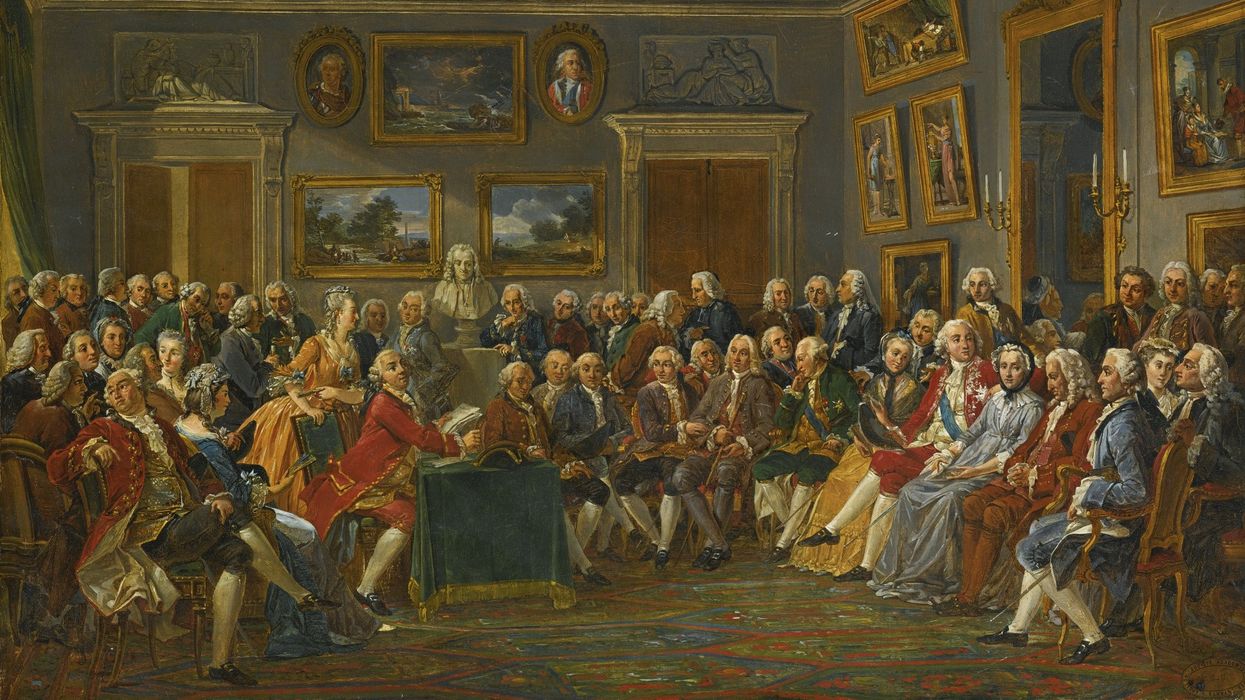Radwell is the author of “ American Schism: How the Two Enlightenments Hold the Secret to Healing Our Nation ” and serves on the Business Council at Business for America. This is the second entry in a 10-part series on the American schism.
Even the most casual reading of the news headlines today can be quite disheartening. With war raging in multiple regions and climate change threatening the planet’s existence, it certainly seems like the world is going to hell in a handbasket. Of course this is in addition to our domestic political arena, which often resembles a three-ring circus.
In the latest act, in response to growing citizen hysteria, a usually futile legislature finally crafted a comprehensive bipartisan immigration bill, only to have the very guy who provokes the hysteria in the first place instruct his minions to veto said bill. One could not make this stuff up.
But perhaps we need to change our perspective. How are we doing at a macro level over the last 300 years based on objective measures? As Stephen Pinker explains in his book, “Enlightenment Now,” the data make a compelling case for an unparalleled surge in human prosperity – in fact, we have made more headway during this three-century timeframe than during the prior 2,000 years. One example among many: 300 years ago the life expectancy of humans was about 30, and four-fifths of the world lived in horrendous poverty; today, the average lifespan is over 70 in almost every part of the globe, and about one-fifth of the planet’s inhabitants live at the dreadful level of poverty.
Thus we can conclude (if objective data still matters), a focus on the pursuit of empirically based science has resulted in an unleashing of human capacity previously unrivaled in our history. The 18th century period we now refer to as the Enlightenment has provided the bedrock for what we think of as a modern society. While the Enlightenment was an all-encompassing movement marking a plethora of disciplines, one overriding theme of the era was celebrating the astonishing potential of human capacity. For the millennium prior, the determinants of an individual’s prosperity were demarcated by two simple factors: the birth lottery and one’s brute strength.
As Benjamin Franklin and Denis Diderot showed us, all humans are capable of reason and problem-solving and thus able to build their own unique brand of prosperity. They postulated that one’s destiny on earth is not solely in the hands of faith, but also on the ability to observe the universe and employ deductive logic. More recently, Jonathan Raunch built on this concept in what he calls a “ Constitution of Knowledge ”: a powerful structure he visualizes as a funnel – one end very broad. allowing a wide range of idea contributions from all, while getting progressively narrower as only those ideas that can sustain academic rigor come out the other side. The key features of transparency and peer review render the discovery process cumulative, and thus very efficient at building knowledge within what today we would call a “network.”
Yet despite this impressive track record, for the last 60 years we have been experiencing a head-on assault from the postmodern movement, which maintains that truth is elusive and all is subjective. The original intent of many postmodern thought leaders was to incorporate diverse voices into a discussion dominated by white European males, a much-needed societal evolution, but unfortunately the result has often been to turn the traditional merits of empiricism on its head.
Today, you don’t have to be a philosopher or an academic to be a postmodernist. The goal of incorporating diverse voices has been construed by many politicians, academics and citizens to warrant everyone being entitled to one’s own facts – how convenient for us. This “lay postmodernism” is so pervasive that cherry-picking “one’s own facts” is now claimed as an inalienable right. Many who get lost in a sea of digital information have simply abandoned the pursuit of truth altogether. Moreover, this new lay postmodernism fad doesn’t discriminate based on partisan orientation. Whether in the form of conspiracy theories or alternative facts on the right, or a blinding focus on identity politics on the left, amygdala-driven conversations have crowded out reason and data across the political spectrum.
Most alarming perhaps is that lay postmodernism has increasingly invaded the realm of science in areas such as climate change or public health care where advocates on both sides choose to use the facts that already confirm their rigid opinions. This is a far cry from what Thomas Jefferson meant when he said “difference of opinion leads to inquiry, and inquiry to the truth.”
When we surrender to this development, we do a tremendous disservice to the valuable aspects of the postmodern evaluation, but more importantly, we do so with great peril to our democracy. Indeed, objective scientific truth is a required element of democracy, and embracing it is the only hope for reaching consensus on policy. The intent of most postmodern thinking was to bring alternative views into the conversation, not to discard our constitution of knowledge. The former can be accomplished without throwing the proverbial baby out with the bathwater.




















Trump & Hegseth gave Mark Kelly a huge 2028 gift